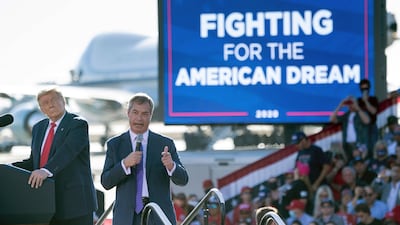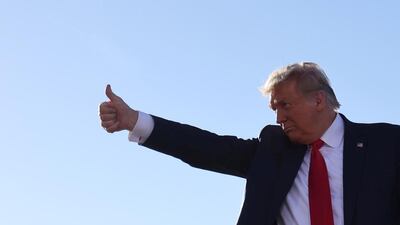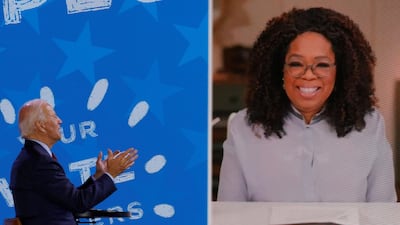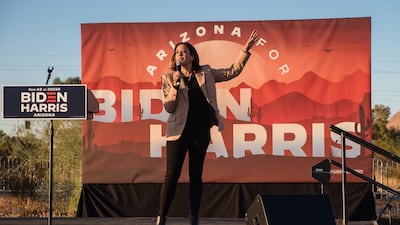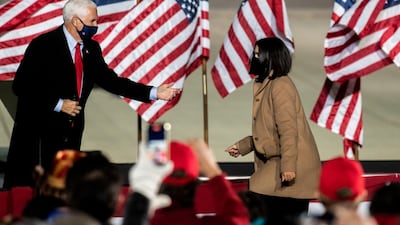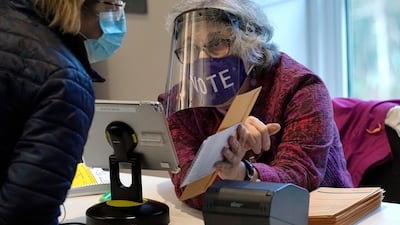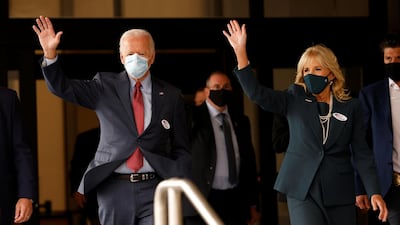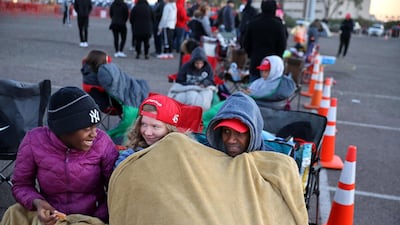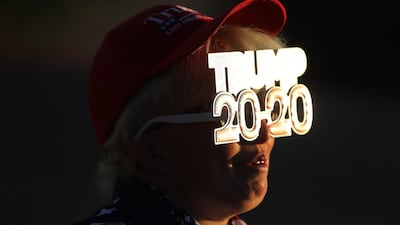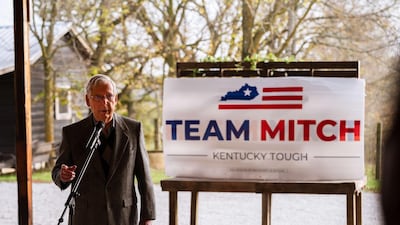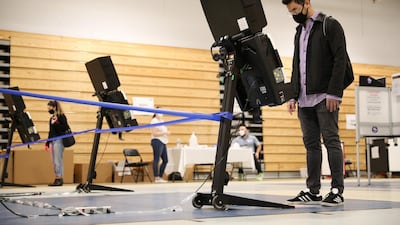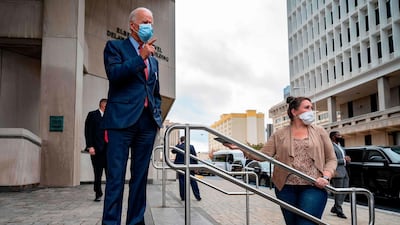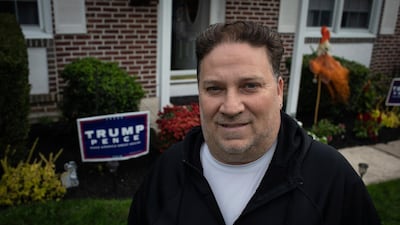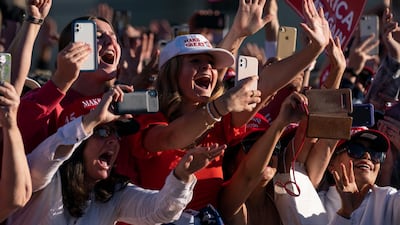US President Donald Trump and Democratic presidential candidate Joe Biden have relied heavily on political advertising before the election next Tuesday.
From television to social media, their campaigns have spent millions of dollars to win over voters.
Mr Biden had raised $177 million in campaign funds at the start of October, compared to Mr Trump's $63.1m, The New York Times reported.
The Trump campaign cut millions from its national budget as contributions dwindled, while Mr Biden added tens of millions to his war chest.
As the election draws near, recent advertisements released by the Trump campaign have relied on misinformation and scare tactics to sway voters.
A two-day Google advertisement by the Trump campaign erroneously claimed Mr Biden would raise taxes on 82 per cent of all Americans.
Mr Biden has said tax increases would only affect those who earn $400,000 or more a year.
The Trump campaign also promoted an unusual attack advertisement on YouTube this week that compared Mr Biden to a zombie.
The video, How to Prevent a Zombie Uprising, featured images of Mr Biden.
“Look for someone who has a corpse-like appearance, exhibits aggressive behaviour, craves human flesh and utters incoherent moans and groans,” its narrator says.
It has been viewed more than 6.9 million times.
Mr Trump spent about $90m on Facebook advertisements since July 1, $18.8m more than Mr Biden, research from the New York University Ad Observatory found.
The group interviewed 6,500 respondents during a survey to track political spending on the social media site. It found that 27 per cent of Mr Trump’s advertisements on Facebook since July 1 were used to attack the media.
The study also found that the Trump and Biden campaigns applied highly specific filters to reach out to Facebook users.
The filters provided an insight into the types of voters the campaigns hoped to win over as both focused heavily on swing states and minorities.
The Trump campaign went for the African-American vote by using filters to reach voters interested in "hip hop music, African-American music, African-American culture and/or Vibe [magazine]".
It also reached out to fans of sports clubs in swing states, including the Green Bay Packers American football team in Wisconsin and Detroit Red Wings ice hockey team in Michigan.
The Biden campaign sought to win over the LGBTQ community by homing in on Facebook users interested in "LGBT community, Out [magazine], Pride and/or RuPaul's Drag Race".
Mr Biden also zeroed in on National Public Radio listeners, Oprah fans and Facebook users interested in Lin-Manuel Miranda, The Avengers film series and Star Trek.
The Biden campaign received a significant cash boost from billionaire Michael Bloomberg, who announced this week that he would finance an advertising blitz for the Democratic presidential nominee in the final week of the campaign.
Mr Bloomberg, who unsuccessfully ran for the presidential nomination, will spend $15m on advertising in Texas and Ohio.
The money will pay for state-wide advertisements in English and Spanish. The move bolsters the Biden campaign as it focuses on traditionally Republican states.
The former vice president has focused on red states to appeal to voters, often suburban, whose opinion of Mr Trump has changed owing to the coronavirus pandemic.
He has also trained his sights on young voters and people of colour in his quest to turn red states blue. While Texas is home to a large Republican population, polling has shown that Ohio remains evenly split.
Until now, Mr Bloomberg had focused on boosting the Democratic ticket in Florida after he pledged $100m to support Mr Biden in the southern swing state.
Meanwhile, Bloomberg news agency reported that Mr Trump had withdrawn most of the advertising funds for Florida to focus on four battleground states: Michigan, Minnesota, Ohio and Pennsylvania.
The Trump campaign denied the report, saying it was spending more than a million on TV advertising in Florida.
However, his campaign suffered a blow as fundraising slowed and the economic gains he hoped to tout were undone by the coronavirus pandemic.
